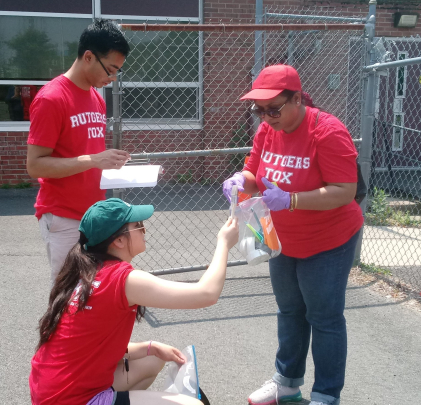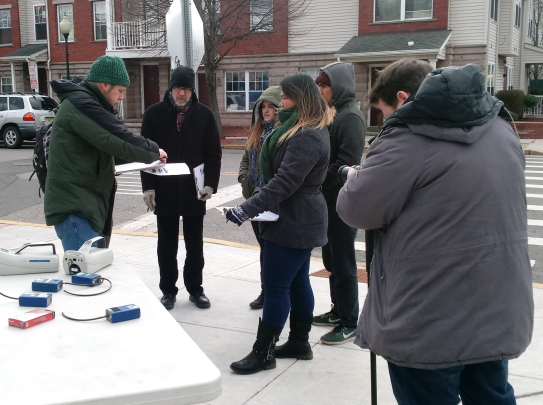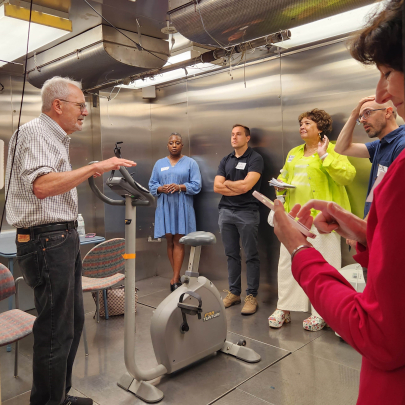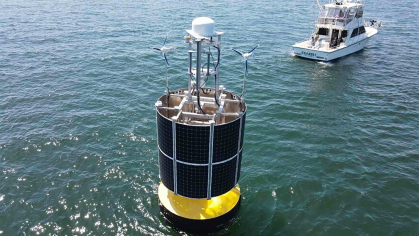Rutgers Researchers Partner with New Jersey Communities to Tackle Environmental Health Challenges
Center for Environmental Exposure and Disease drives research to combat local contaminants and improve public health
In New Jersey, where environmental challenges impact countless communities, Rutgers Health’s Center for Environmental Exposure and Disease (CEED) has been a steadfast ally for more than three decades, working alongside residents to tackle pressing local health threats. From contaminated water and soil to harmful pollution levels, CEED’s partnerships with communities across the state have led to meaningful, transformative change.
Now the center is strengthening its efforts, forging even deeper connections with local communities to address emerging environmental health concerns.
“We’re committed to doing research that matters,” said Helmut Zarbl, director of the center and chair of the Department of Environmental and Occupational Health and Justice at the Rutgers School of Public Health. “Our state is a microcosm of longstanding and emerging environmental problems confronting the entire nation. Our overall goal is to improve the environmental health of people in New Jersey.”
Our state is a microcosm of longstanding and emerging environmental problems confronting the entire nation. Our overall goal is to improve the environmental health of people in New Jersey.
Helmut Zarbl
Director & Chair, Department of Environmental and Occupational Health and Justice at the Rutgers School of Public Health
Established in 1987 and comprised of 63 members from departments within Rutgers University, Princeton University, Rowan University, and the New Jersey Institute of Technology, the center is located at the Environmental and Occupational Health Science Institute on the Busch campus at Rutgers-New Brunswick. It has been building relationships and performing research in and for communities for more than 37 years.
In 2013, community members in Elizabeth, N.J., approached the center to assist with a truck count and air monitoring that produced the data necessary to convince officials that a heavy-duty truck ban on a street with schools, daycare centers and housing was necessary. As a result, children have reduced exposure to toxic emissions that have been known to exacerbate asthma and lead to other health-related impacts. CEED continues to actively work with the community, including a truck count and air monitoring event on May 6, which is World Asthma Day.
Walt Leak, a local activist and church deacon, said Rutgers scientists are a “godsend.”
“This community needs to know the truth,” Leak said. “We want to know what’s in our air. This community is big for asthma. Maybe this [truck traffic] is one of the things that’s causing it.”
Elizabeth’s partnership with CEED is highlighted in a mini documentary entitled Countdown to Cleaner Air: Street Scientists and the Fight for First Street, created by filmmaker Christina Eliopoulos.
In 2022, CEED researchers began working with the East Trenton community to address the high levels of lead in children from contaminated water, soil, and dust left behind from ceramics manufacturing. A coordinated effort of 200 home visits collecting water, paint, soil, and house dust put a spotlight on the neighborhood leading to ongoing action by the Environmental Protection Agency.
“Not only were we able to educate the residents on the dangers of lead toxins, but we also taught residents how to collect the data needed to expose lead presence in the neighborhood soil and water,” said Shereyl Snider, a community organizer for the nonprofit youth organization UrbanPromise and a long-time East Trenton resident. “We have known for far too long that many urban, low-income, Black and Latinx communities are faced with poverty, poor housing, poor water, and environmental hazards.”
Snider said working along with community-based organizations and Rutgers allowed the residents the opportunity to conduct a community and academic science study “to analyze just how toxic the soil was and use the data to influence legislation to address the problems voiced by the people.”
In Paulsboro, N.J., scientists have been studying the health impacts of drinking water that’s contaminated with a group of chemicals known as PFAS since 2019. After a company polluted the municipal water in the town and in surrounding Gloucester County municipalities, researchers found a possible link to elevated cholesterol levels. Participants in the CEED pilot study had nearly four times the amount of polyfluoroalkyl substance in their blood compared with normal levels in the U.S.
“What Rutgers did for Paulsboro was to give our residents baseline data and help get information out,” said Gary Stevenson, the former mayor of the borough. “The governing body alone could not have done that.”
As a result of the preliminary findings, Paulsboro was selected to be one of eight sites in the nation funded by the Centers for Disease Control and Prevention to study the health impacts of drinking water contaminated with PFAS, offering additional resources to the community. Scientists working on the projects informed New Jersey’s Drinking Water Standards which, until national standards were created, were the strongest in the U.S. for polyfluoroalkyl substances.
As the nation’s most densely populated state, New Jersey has many residents who live near congested roadways as well as industrial and commercial centers. It’s also home to more Superfund sites than any other state.
A crucial component of the center’s work encourages additional collaborations – such as those in Elizabeth, Trenton and Paulsboro – between communities and scientists.
“We have pilot project funding dedicated to supporting promising community-engaged research projects, which can be initiated by community groups and grow into these types of long-term, productive relationships,” said Robert Laumbach, the CEED director of community engagement who is the principal scientist on the Paulsboro health study on polyfluoroalkyl substances.
“We have experts in a broad number of specialties, so we’re able to perform cutting-edge research that addresses emerging environmental health concerns of scientists and community members,” said Emily Barrett, CEED deputy director and professor in the Department of Biostatistics and Epidemiology at the School of Public Health. “We have exceptional access to researchers with varied backgrounds, so we excel at creating cross-discipline solutions.”
CEED’s work continues to expand with support from the National Institute of Environmental Health Sciences. Recent funding will further support the center’s ongoing research and encourage new collaborations between scientists and communities facing environmental health challenges.
Individuals or municipalities wishing to contact the center are advised to reach out to Associate Program Manager Kristin Borbely at borbely@eohsi.rutgers.edu or at 848-445-0170. Of note, members of the center are currently developing an app for reporting environmental concerns.
Explore more of the ways Rutgers research is shaping the future.





